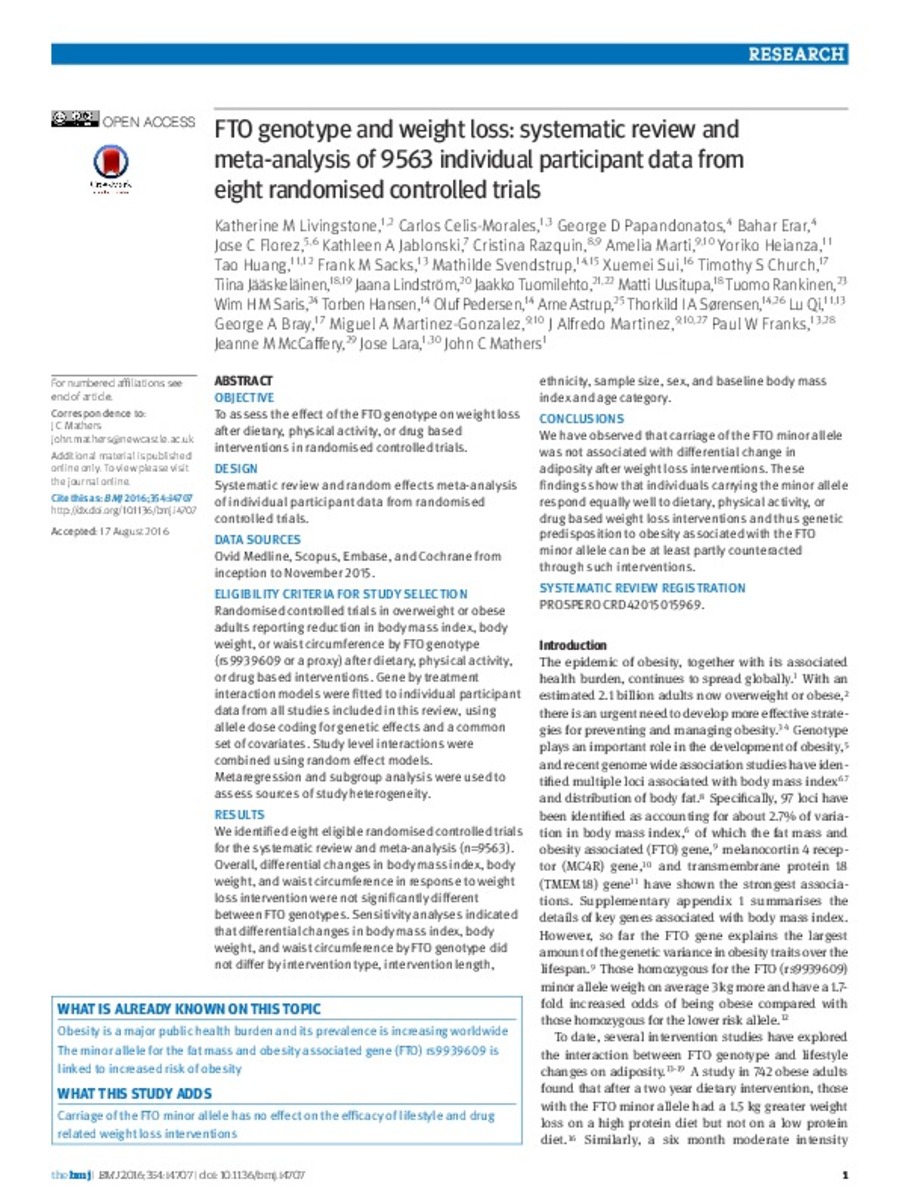FTO genotype and weight loss: systematic review and meta-analysis of 9563 individual participant data from eight randomised controlled trials
Keywords:
FTO genotype
Weight loss
Randomised controlled trials
Materias Investigacion::Ciencias de la Salud::Nutrición y dietética
Materias Investigacion::Ciencias de la Salud::Medicina preventiva
Citation:
Livingstone KM, Celis-Morales C, Papandonatos GD, Erar B, Florez JC, Jablonski KA, et al. FTO genotype and weight loss: systematic review and meta-analysis of 9563 individual participant data from eight randomised controlled trials. BMJ 2016;354:i4707
Statistics and impact
0 citas en

0 citas en

Items in Dadun are protected by copyright, with all rights reserved, unless otherwise indicated.









